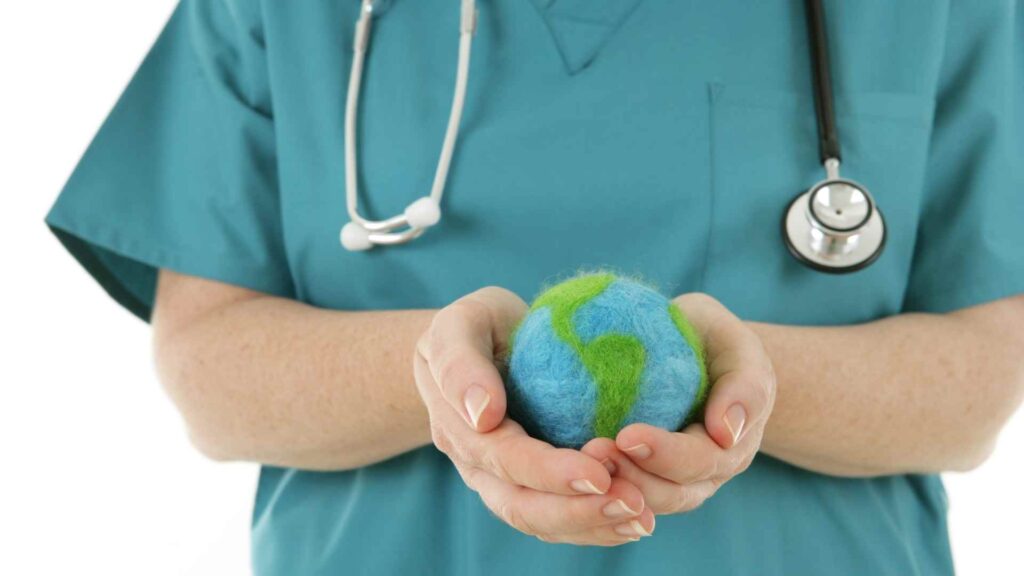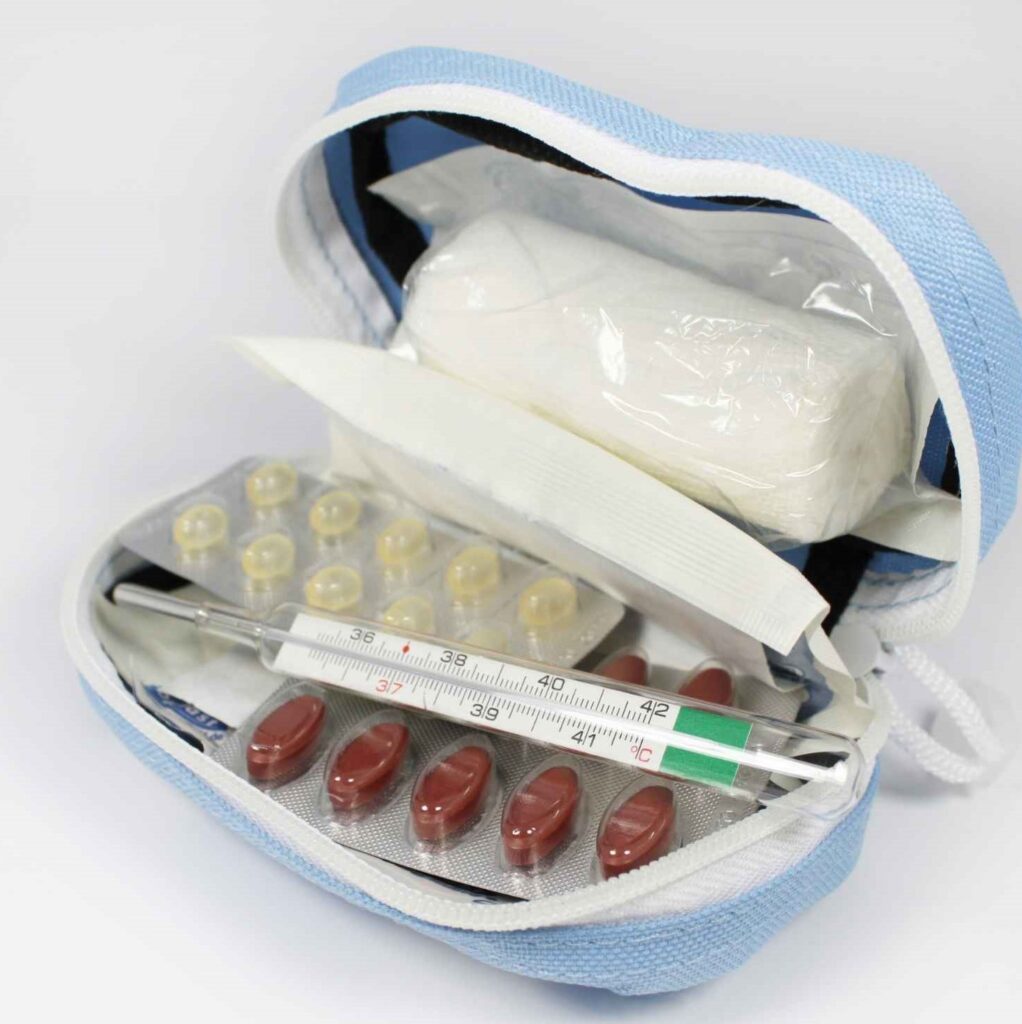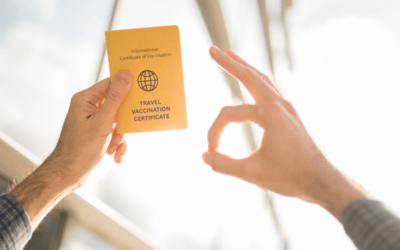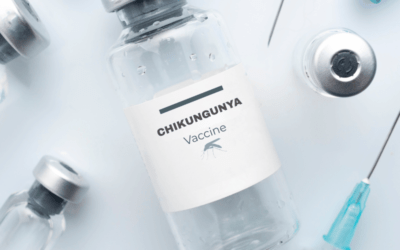We are all feeling the changes that the COVID-19 pandemic has created in pretty much EVERY job around the world. As a trainer in travel health, I too have felt the chaos. Many adaptations to my practice have been needed. The scariest one being mastering the art of ZOOM and the séance-like attempts to see if people can hear and see me as I plead with people to ‘give me a sign’ if anyone is there behind the blank screen. Lots of travel health professionals are concerned about giving appropriate travel health advice in this new era of COVID-19.
But aside from the technical learning curve, coupled with learning the correct orifice to stick a PCR swab in when I’m in my clinical role, I’ve gone backwards and forwards about whether COVID-19 has changed everything about travel health practice – or actually, nothing at all.
I have come to the conclusion that COVID-19 has not really changed anything in principle. In fact, it has poignantly shone a rather bright spotlight on what we actually do in travel health.
To all the clinicians out there who are embarking on practising travel health again, who are feeling anxious or rusty or unsure what to advise their travellers, you needn’t really be that worried. You are well-versed in looking at a situation and making decisions about how risky certain activities or journeys are. And you are also well-practiced in working out how to mitigate that risk.
You are not just ‘coming back into it all again’ after a lockdown-lull. Try not to see it that way.
But this is all so new having to incorporate COVID-19 into my travel health practice! I don’t know what I am doing anymore!
Think about all the considerations you had to make in the last year. About seeing your family, or venturing out to the supermarket, or testing the waters with a camping trip. You likely asked yourself questions such as; ‘should I visit [insert place or name here] and if I do how can I make it as safe as possible?’. Questions like this have been commonplace in the last year.
My advice? Just substitute ‘Grandma’ for ‘Nigeria’, check Travel Health Pro or TRAVAX instead of Boris on BBC news, and simply apply the same logic.
That’s travel health in a nutshell: identifying and highlighting the risks of someone ‘going somewhere and doing something’, helping them to mitigate the identified risks, and then bidding them farewell as they head off to crack on with the journey as safely (or not) as possible.
Look at table 1 below, for example:
| Where are you leaving the house to go to? | Your medical status | Considerations around medical status and provision of population being visited | Medicines available to reduce risk to traveller and population | Non-medicinal products and actions to reduce identified risks | Administrative requirements |
| Grandmas in the nursing home down the road | Well, asymptomatic. Not pregnant. Not immunosuppressed. No meds. | Diabetic, elderly, frail. Other residents in same home who are quite unwell. Had COVID-19 booster, flu, and pneumococcal. Good access to medical care – in nursing home but services are stretched. | Flu vaccine, pneumococcal vaccine, COVID-19 vaccine. | Social distancing. Hand washing. PPE. Short visiting window. Outdoor space. Phone or video call instead? Write a letter? | Show nursing home proof of vaccination. Demonstrate a negative antigen test. Perform antigen test every day for a few days prior. |
| Nigeria | Well, asymptomatic. Not pregnant. Not immunosuppressed. No meds | Stretched hospital care. Unknown variants of COVID-19 circulating. Many of the population unvaccinated for COVID-19. Many other types of circulating diseases. | Vaccines for flu, COVID-19, hep A typhoid, TDP, rabies, hep B, meningitis ACWY, TB, Malaria tablets. | See above, plus: Food and drink advice, bite avoidance products, medical kits, and don’t play with cute kittens in case they are rabid. | Negative PCR 72 hours before arrival on specific certificate (note: I totally made that requirement up for the purposes of demonstration. No point in finding out specifically as it will have changed by the time you read this anyway). ICVP for yellow fever. Possible ICVP for Polio. |
See? it’s all the same kind of weighing-up process. Same questions, just a few different factors for consideration (all of which you don’t need to remember off the top of your head).
You will be just fine.
But what about all the decisions? HELP!
Remember, you are NOT deciding for a traveller whether they should go or not. Just like no-one else can decide for YOU if you are going to see your Grandma. That’s always THE INDIVIDUAL’S decision about how content they are with the risks at stake and how successfully they can manage them.
You are not even telling them which drugs to have – this is also THEIR choice AFTER you have expertly explained:
- What potential ailments await them in the country (using your trusty database of course),
- If the said ailment might kill them, disable them, live in them, or just floor them temporarily,
- What is available medically or from an advice point of view to prevent said disaster.
- How much it’s going to cost them (and probably had to deal with the look of horror as you explain that some vaccines are quite expensive and that the NHS won’t be funding some of them).
You’re just there ultimately as a conduit to good information sources. Plus to dispense the drugs if they decide to go ahead with the trip. I can’t decide if that sentence has just totally undermined your job, or if it’s completely reassured you around your responsibilities (or maybe a bit of both…).
But now there are more potential risks than ever. How do I communicate the sheer quantity of risks in a short travel health appointment?
If you have been doing the job right previously you will already be used to sharing information sheets about things that take way too long to discuss in a short consultation from your database of choice. If you are not yet back in the travel health zone you will be pleased to hear that NaTHNaC and TRAVAX have some excellent factsheets on COVID-19 which contain all the information and links a traveller could possibly need to travel safely during COVID times.
If you have not ALREADY been making the most of the 100’s of comprehensive information sheets on each database, I suggest you make a start.
But how do I even begin to address COVID-19 in my travel health consultations and where do I go for this information?
There has been a new(ish) tab added to the country information on NaTHNaC specifically for COVID-19 risk in each country. This appears below ‘vaccine recommendations’, ‘malaria’, ‘other risks’, and ‘latest news’. If you are used to using your database properly and clicking all the tabs then it’s just another useful tab to glance at and relay to your traveller.
Again, if you have not ALREADY been clicking all the tabs (or scrolling all the way down if you are a TRAVAX user) on the country pages, then again, I suggest now is a good time to start.
I have heard travel health professionals panicking that they are struggling to keep on top of country requirements for pre-departure testing during COVID-19 times. But when have we EVER had to remember every country, every risk in it and every requirement off by heart?
NEVER.
We always lean on our databases for this information. In fact, I try REALLY hard to NOT remember all the information as it’s super important to always be using the latest guidance rather than the stuff I learned last year about ‘what the vaccine recommendations for Thailand are’ (for example).
But you might naturally be a bit unsure about where you can direct your travellers to if they ask you about COVID-19 testing or entry requirements and, no, the usual databases don’t tell the full story.
But they DO give useful links.
And one of those links is to www.gov.uk.
This is your new best friend when it comes to the latest COVID-19 travel guidance (as are the embassies of each destination).
BUT, saying that, it’s actually your traveller’s best friend really: It will be THEM who will need to keep an eye on all the changing administration requirements, not you. You are going to be far too busy dealing with actual RISKS for all that bureaucratic malarkey. People manage to find out what a nightclub requires in terms of certification to ‘get in’ (often while intoxicated). They can just as easily find out what kind of ‘COVID-19 passport’ a country requires to gain entry.
Defer that part to them.
Remember, PCR and antigen tests do not work the same way as vaccines, medical kits, helpful advice, or malaria tablets. No-one takes a PCR test, grabs their certificate, and goes ‘right that’s me protected now’.
Well, actually, some people do. People eh? I guess THAT’S the part where we step in.
I’ve not left my house for so long that I don’t even know where Birmingham is these days. What if someone is going somewhere I have never heard of?
Incidentally, I have often heard travel health professionals worrying that they need to know where every location is in the world. But reassuringly, this kind of concern is why Google Maps was invented. During the lull in travel health clients, if you have forgotten where all the countries are (or never knew in the first place) then use it. I realise that using anything with the word ‘google’ in it to give professional advice to people is generally frowned upon by evidence-based practitioners. However, this is a definite exception if you want to know where the person in front of you is actually going. Now I have written that, I can’t categorically say that google maps are an honest representation of the world’s exact layout… But I’ll leave that topic for a ‘flat Earth’ conversation down the pub.

So, if everything is still the same, why do I feel so nervous about recommencing travel health appointments?
COVID-19 stopped us all in our tracks. It grounded travellers. It consequently grounded travel health professionals. This was unnerving for sure. But how many times have we advised against travel before this? We have advised pregnant travellers to avoid malaria zones. We have comforted disappointed couples (hoping to conceive) while they cancel honeymoon trips to various Zika-ridden destinations. And we have explained the huge risks to a asplenic people going to yellow fever zones…
How simple did the lockdown make it for advising about travel health? We mainly just went; “Yeah, it’s pretty risky (and illegal). Perhaps consider not going” (or travel health services stopped altogether). Simples. And if they DID still decide to go (thank you, humanitarian and other essential workers) then it was business as usual. All the patter about the risks and how they could protect themselves and the people they were visiting…
It’s merely that pause in services that has made us all feel rusty and nervous about starting up again. There is nothing new about our job description.
Everything is STILL THE SAME.
COVID-19, if anything, will present us with a great opportunity to recognise what we do all the time. This can only improve our practice greatly. That’s a good thing right?
But HOW has this enhanced travel health practice?
COVID-19 has helped the whole world to understand the concept of travel health promotion. It has helped us all to be risk assessors, ethical travellers, more aware of the benefits of vaccination, infection control, and healthy behaviours. Mental health is getting priority attention these days, and should feature as a consideration in our travel health consultations ANYWAY. And certainly, most of us have become more aware of how it feels to have limited resources and stretched health care services. Perhaps this is a tiny taste of what it’s like to be in a developing country? A place where it’s sadly normal to have overstretched or limited medical care and a raging disease that is a real threat to most of the population. (Think Africa. Think Malaria).
A lot more of the general public now know that vaccination schedules can be altered in times of crisis. They understand boosters, licensing, vaccine research procedures, and they challenge their anti-vaccine peers. There is more available research on correct immunisation techniques. And the best news of all – flu vaccine uptake is at an all time high.
Travellers are generally coming to us more prepared, more risk averse, more informed. Just what we have always wanted in the field of travel health.
The principles of travel health practice are to protect the traveller and the people in the country being visited. To prevent the spread of disease, to reduce risks, to supply useful information for safely venturing out and exploring and engaging with the world around us.
As travel health professionals, that’s just what we do and have always done, including through the pandemic.
And to do the job well, all we really need is a surprisingly small amount of knowledge and a set of guiding principles and tools: a basic understanding of diseases and their transmission routes and consequences, a PGD, a reliable database, a place we can access well-worded information sheets from, a place to write it all down, and a long appointment slot.
OK, so I admit the latter one is harder to come by for most.
Final thoughts.
I do feel the urge to wish you luck if you are feeling new to giving travel health advice again (or are indeed new to it full stop).
But you don’t need it.
You 100% know what you are doing when it comes to risk assessment and managing preventable risks. And your travellers will often do too.
Now, more than ever.
As we venture back into seeing travellers flow through the doors again, enjoy the feeling of keeping the world as safe as possible. You got this.









